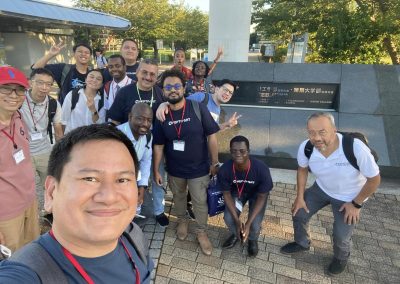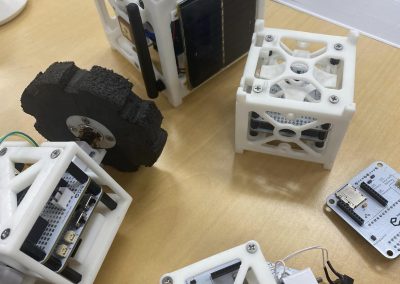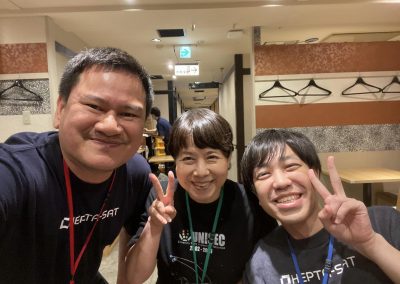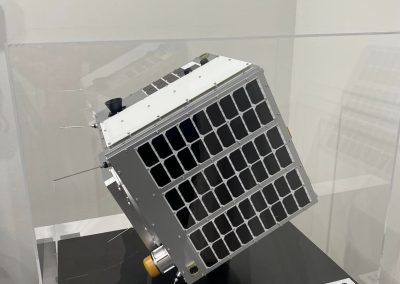In August 2023, Dr. Rogel Mari D. Sese, Chair of the Aerospace Engineering Department, participated in the 12th CanSat/CubeSat Leadership Training Program (CLTP) hosted at Nihon University in Chiba, Japan.
The CLTP is an annual program conducted by the University Space Engineering Consortium (UNISEC) to promote space engineering education in different countries using cansats and HEPTASATs. Having previously participated in CLTP4 at Keio University in 2013, this year’s CLTP was held at Nihon University and revolved around the HEPTASAT, a 1U size satellite with all the similar functions and sub-systems found in an actual cubesat. The selection process involves an examination to assess the technical background and future professional plans of the applicants.
Dr. Sese represented the Philippines as the sole participant this year.
Reflecting on the experience, he remarked, “It was a great experience interacting with 16 colleagues from all over the world. Prior to going to Japan, we had to watch online lectures on systems engineering and cansat systems. Funny enough, the videos we watched were taken during the CLTP4 from ten years ago. It was a blast from the past to see how I looked like a decade ago.”
The program spanned two weeks at the Nichidai Funabashi Campus, during which participants developed the HEPTASAT in just three days. This included the creation of various sub-systems such as Electrical and Power Supply, Command and Data Handling, Communications, Sensors, and Structures.
“In addition, we had to design, implement, and operate secondary missions, which was nerve-wracking and challenging! Our team decided on a store-and-forward system to transmit data from a scientific instrument in an inaccessible area (HEPTASAT-Lite) to the ground station using the HEPTASAT as a relay. It was all worth the effort since our team achieved the minimum, full, and advanced success criteria for the mission! Not bad for a few days of intensive work,” he added.
Towards the end of the two-week training, Dr. Sese and the group had the opportunity to visit Japanese space companies such as Astroscale, ispace, SpaceBD, and Arkedge Space. They witnessed the testing of a satellite scheduled for launch in the coming months and also had the privilege of training 22 Japanese professionals from various space companies.
Dr. Sese was selected by his trainers and fellow participants to serve as the main instructor, a role that involved delivering the first and final lectures and ensuring the smooth operation of the two-day teaching training session. Despite language barriers, he commended the excellent performance of fellow CLTP participants and expressed gratitude to the Japanese student TAs for their patience and efforts in communicating in English. This experience offered valuable insights into the possibility of conducting similar HEPTASAT training programs in the Philippines in the near future.
“Overall, the CLTP training program was a great and amazing learning experience! It was challenging and hectic, but learning from excellent professors like Yamazaki-sensei and Sakamoto-sensei and working with fellow space professionals from all over made it very conducive and manageable,” Dr. Sese continued.
Hopefully, this effort will pave the way for training other professionals in the Philippines who are keen on learning and understanding how satellite systems are designed and operated. The more people understand what satellites are capable of, the more they will realize the benefits they can provide to society. All with the goal of bringing the benefits of space technology to fellow Filipinos and humanity.
For more details about this training program, please visit http://cltp.info/cltp12.html.
Published on




